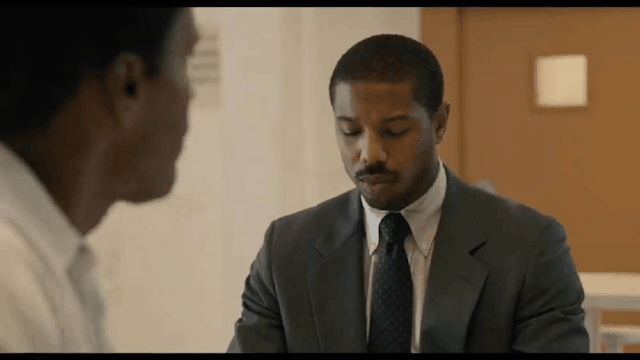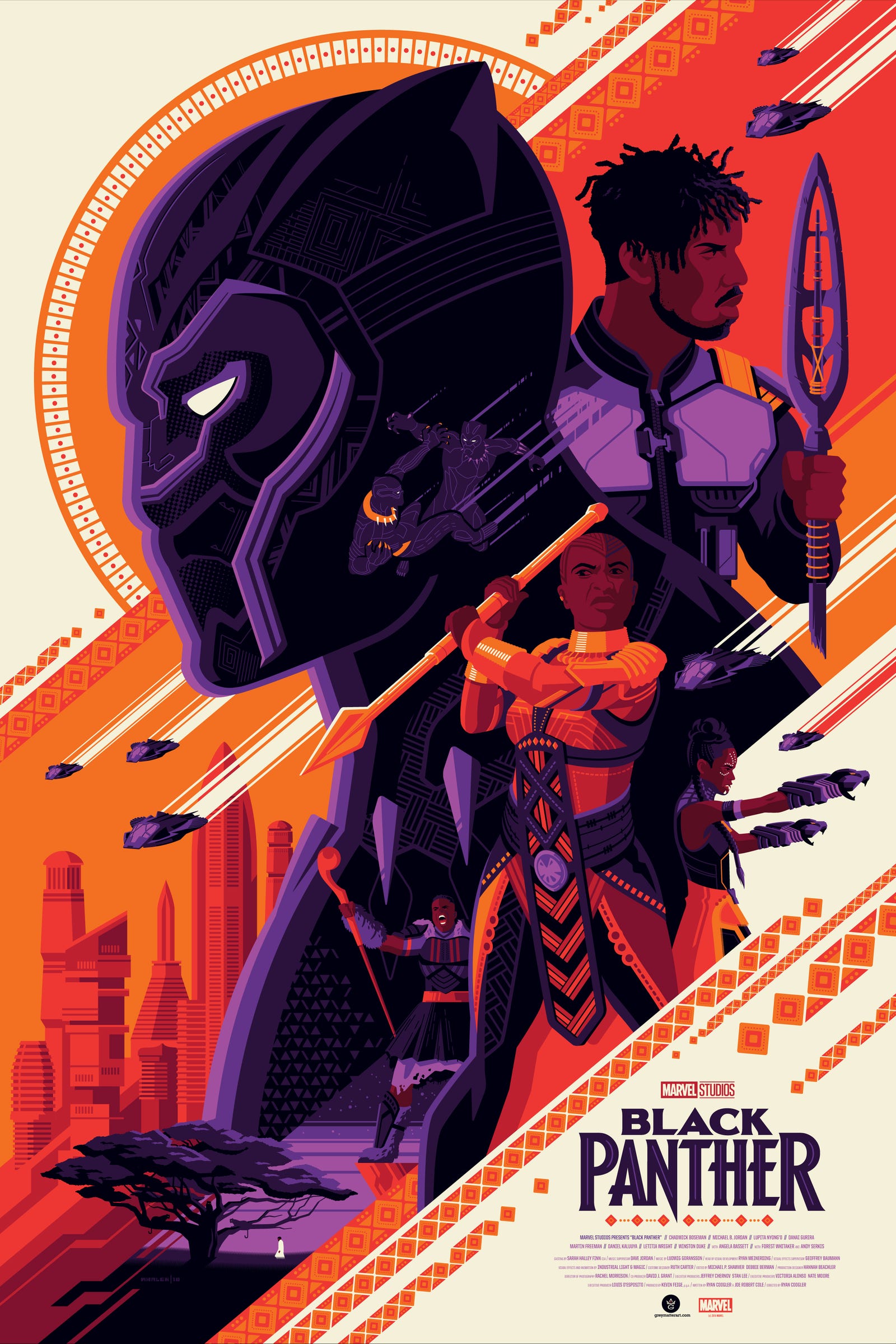Actor/producer Michael B. Jordan's 25-year Hollywood career includes roles in 22 television shows (most notably, as "Wallace" on The Wire) and 23 feature films. In 2013, Jordan made the first of what would become three critically-acclaimed collaborations with writer/director Ryan Coogler. Now running his own production company, Outlier Society Productions, Jordan made his directorial debut in 2022's Creed III.
10. Fruitvale Station

Fruitvale Station is based on the real-life fatal shooting of 22-year-old Oscar Grant by Transit Police Officer Johannes Mehserle in Oakland, California -- while Grant was handcuffed on lying on his stomach. Featuring Michael B. Jordan in his first starring role and first collaboration with writer/director Ryan Coogler, Fruitvale is the first scripted movie to examine one of the highly-publicized incidents in the recent wave of African-American males murdered by police on video. Station was named one of the top 10 films of 2013 by the American Film Institute (AFI).
9. Kin

A recent death in the family; a recently paroled son; a road trip; a state-of-the-art assault rifle; brotherly bonding; a friendly stripper; Nazis with a vendetta; and a surprise appearance by Michael B. Jordan all make for a one-of-a-kind adventure that forever changes the lives of everyone involved.
8. Just Mercy


Just Mercy is the film adaptation of attorney Bryan Stevenson's critically-acclaimed 2014 memoir Just Mercy: A Story of Justice and Redemption, featuring Jordan in the central role. Focusing primarily on Stevenson's attempts to free a wrongfully-convicted African-American man sentenced to the death penalty in Monroeville, Alabama, Just Mercy is a rarity among Hollywood movies about racism -- a savior film that features Black people being saved by a Black person. The movie highlights the astounding level of institutional racism within the Alabama (and American) justice system -- which persists to this day. Some moviegoers may initially have trouble comprehending the magnitude of the problem and believing the extraordinary lengths to which those in power went in order to uphold a system of oppression.
Interestingly enough, director Destin Daniel Cretton strongly indicts the caucasian male members of the communities involved. But though history tells a different story, the movie goes out of its way to absolve white women of any complicity in connection to the systemic racism that it depicts.
A courtroom drama that outshines genre favorites like A Few Good Men, A Time to Kill, Primal Instinct and Philadelphia, Just Mercy rivals To Kill a Mockingbird. Ironically, the author of the book on which that movie was based, Harper Lee, was a native of Monroeville.
The movie begins with the 1987 arrest of Monroeville entrepreneur Walter McMillian, whose accused of murdering a local 18-year-old white woman, Ronda Morrison. After moving to Alabama and finding local commercial property owners reluctant to rent to an advocate for Death Row inmates, Harvard Law grad and Delaware native Stevenson moves in with the family of Eva Ansley, a local woman horrified by the Alabama justice system's mistreatment of poor defendants.
Initially refusing to work with the young attorney due to his previous lawyer's ineptitude, McMillian finally comes around following Stevenson's acceptance by his family and community.
McMillian eventually reveals that he was transported to Death Row immediately after his arrest, where he remained for more than a year before his trial. He was also at a fish fry attended by several witnesses, one of whom was a police officer, during the time of the murder. He was targeted by law enforcement and the judicial system not merely because he was African-American but because he was an African-American man who'd engaged in a public affair with a white woman.
In the absence of any physical evidence, the state's case depended entirely on witness testimony. And the primary witness, career criminal Ralph Myers, was indicted as a co-conspirator and offered a 30-year sentence in lieu of the death penalty in exchange for his testimony. Following the trial judge's decision to relocate the proceedings to a nearby overwhelmingly white county, McMillian was convicted by 11 white (with one African-American) jurors and sentenced to life in prison. Unsatisfied, the presiding judge set the jury's sentence aside and imposed the death penalty.
Stevenson's fight to secure McMillian's freedom even included a segment on 60 Minutes.
Onscreen, Stevenson endures police intimidation, legal stonewalling and reluctance to come forward on the part of witnesses to obtain justice for just one client. Would you believe he's gone on to save 125 men from death sentences?
Just Mercy should be required viewing, particularly for those concerned with the need for criminal justice reform.
7. Without Remorse
Without Remorse is the Killmonger prequel that we've always wanted -- but without the MCU's goofy style of comedy. In Black Panther, disillusioned former Navy SEAL Erik "Killmonger" Stevens explains that he's taken lives "in America, Afghanistan, Iraq..." All of these casualties were spurred by the murder of a loved one (his father). Well, Remorse shows disillusioned former Navy SEAL John Kelly take lives in America, Syria and Russia. And the vast majority of these homicides are prompted by the murder of two loved ones (his wife and unborn child).
After returning to the states following a mission in Aleppo, Syria, members of Kelly's SEAL team are bumped off one-by-one by Russian nationals. Kelly himself almost becomes one of the victims but he manages to take out most of the hit team that breaks into his house -- but not before his pregnant wife Pam is shot to death. And not without taking enemy fire himself. What follows is a man-with-a-vendetta story that intersects with plenty of political intrigue involving shady intelligence operatives and clandestine missions as Kelly goes rogue (Jason Bourne-style) and liberally uses his license to kill.
Technically, Without Remorse belongs to the Tom Clancy collection of films and television shows adapted from his books; it just happens to be the best of the bunch. And it's refreshing to see one of these stories not revolve around CIA analyst and supposed desk jockey Jack Ryan.
It was only a matter time until star and producer Michael B. Jordan launched another franchise. Beginning with 2015's Creed, he's been on a five-movie winning streak of excellent cinematic output. Without Remorse is number six. And a must-see.
6. Black and White
Black and White explores contemporary nuances of race relations seldom
acknowledged in mainstream media. It's also the rare film that features
characters pursuing rap careers that isn't lame. Anyone who hasn't seen it
will probably have trouble believing that a cast studded with such a
diverse array of stars (an NBA player, a handful of Wu-Tang Clan members,
Mike Tyson, and a supermodel) could be so good. But Black and White is an
exceptional movie that perfectly captures the racial zeitgeist of its time
-- and today.
A 12-year-old Jordan serves as an extra in this look at white people's fetishization of young Black men in the 1990s in this film featuring Mike Tyson, Allan Houston, Robert Downey Jr. and Claudia Schiffer.
5. Wakanda Forever
4. Sinners
3. Creed II
It's a shame that Creed and Creed II couldn't be released as one four-hour movie because the sequel is a perfect continuation of its predecessor. It also brings the events of Rocky IV full-circle but without the corny elements of that film. In particular, the towel is thrown into the ring in order to save a Drago from being killed by a Creed, where 33 years ago a Creed was killed by a Drago because the towel wasn't thrown into the ring.
The film also subtly addresses the series' inadequacies when it comes to naming African American characters (particularly Mason Dixon and Union Cane). And while it has its share of small introspective moments, Creed II has a large scope, featuring the most locales of any movie in the franchise. Adonis Creed traverses the globe like a 214-lb James Bond, traveling to Las Vegas, Mexico, Moscow, Los Angeles and, of course, Philly.
Like Creed and Rocky Balboa, Creed II is very much about fathers and sons -- but to an even greater extent. Now that the loose ends concerning the Dragos have been tied; the Balboas' issues have been resolved; and the Creeds seem to have found both redemption and peace, one question remains: Will Apollo's other two kids ever be addressed?
Fatherhood does loom large here but the second-most pervasive theme is redemption. Note that while Adonis (Jordan) lost twice in Creed, he emerges victorious from all three of his fights in the sequel. At times, the two themes work together: two fathers, Rocky and Ivan Balboa, redeem themselves as parents by mending their respective relationships with their sons.
2. Creed

Creed passes the Ran test with flying colors: there are no African-American sidekicks; no black criminals; no black "clowns" mugging for the camera; the black people aren't all uneducated; and the black guy isn't the first, or only, one to get killed (Actually, nobody dies in this movie. The black guy, who was the only one to get killed in a previous Rocky movie -- Rocky IV -- is mentioned quite often, however). And yet, the film -- a big-budget, mainstream Hollywood film -- is filled with African-Americans.
Rocky, Rocky II, Rocky V and Rocky Balboa all showcase the blue-collar and poor side of Philly -- but mostly Italian Philly. Creed features, even parades, African-American Philadelphia for the first time. But Creed's most significant departure from the rest of the series is something that shouldn't be such a big shift after all. The city is 44.1% African-American and the only black guys we've seen in the franchise up to this point are out-of-towners: Apollo Creed, his family and his team; Clubber Lang; Mason Dixon and his entourage; George Washington Duke; and Union Cane. For Pete's sake.
The black guy mentioned earlier, who was killed in Rocky IV, is former undefeated world heavyweight champion boxer Apollo Creed. And he practically haunts this film. It's even named after him. But its his son Adonis' (Jordan) story and how he copes with having a legendary father. The previous film, Rocky Balboa, touched on Rocky's son Robert's struggle to live in his famous father's shadow as well and its revealed in this movie that he surrendered to the pressure and moved, not only out of Philly, but out of the country. Rocky tells Adonis that Robert, Jr. now lives in Canada. Adonis however, takes the challenge head-on. He not only takes up his father's profession, he moves from Los Angeles to Philadelphia in order to solicit the Italian Stallion's training expertise.
And in turn, when Rocky needs someone to lean on, it is Adonis, and not his only son, who supports him.
For the first time, Sylvester Stallone plays a supporting role in a Rocky movie -- and he was richly rewarded for it. He was nominated for a Best Supporting Actor Oscar and won a Golden Globe for the same category. Creed's release date, November 25, 2015, marks the fortieth anniversary of the date of the first scene in the original Rocky. How's that for coming full circle?
1. Black Panther












No comments:
Post a Comment